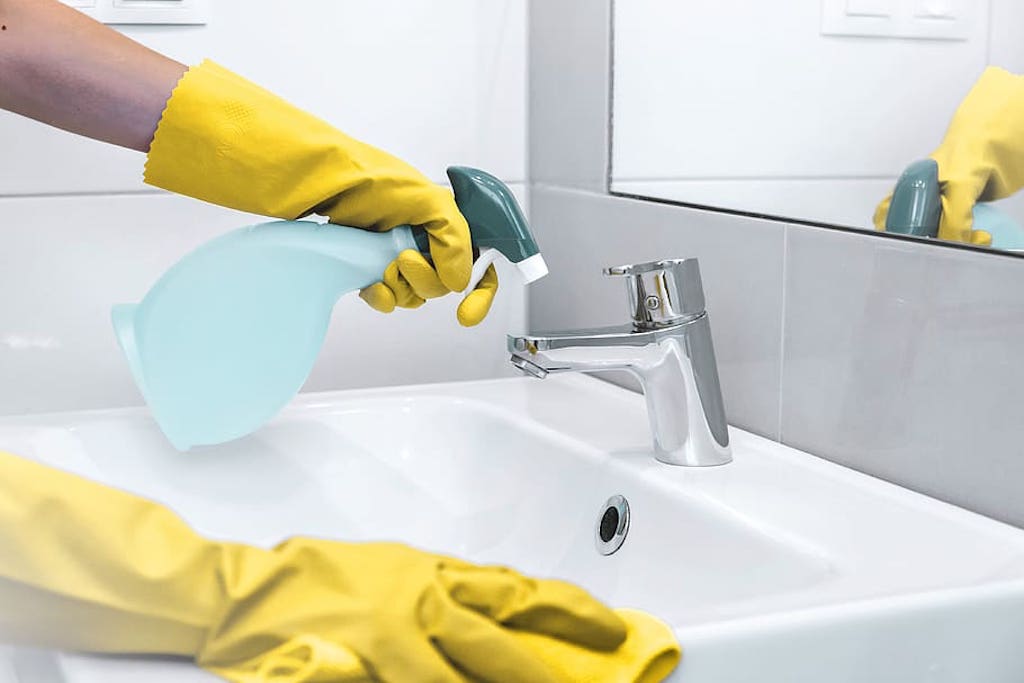Skift Take
Independent hoteliers with smaller back offices could find a third-party company like Blue Canary useful in mapping out heightened health and safety protocols. But it isn't clear if bigger brands with compliance departments will ever find need for outside help on cleaning.
Essentially every hotel company launched a heightened health and cleaning protocol following the coronavirus pandemic to give guests the confidence to book a stay.
But they aren’t always effective, according to one company aiming to be a third-party cleaning verification provider to the hotel industry.
“It’s not a surprise, but all hotels have always been dirty. It’s now about how do we face that music,” Dan Ryan, co-founder of hospitality health and safety platform Blue Canary, said Wednesday during an Independent Lodging Congress livestream. “Our job is to give guests the confidence to return to these hotels.”
More companies than Blue Canary aim to give apprehensive travelers confidence to return to hotels following the pandemic.
Global brands like Marriott and Hilton, industry groups like the American Hotel & Lodging Association, and even independent hotels have rolled out enhanced safety protocols involving measures like more frequent cleanings of public spaces, limiting housekeeping to between guest stays, and focusing on high-touch areas like remote controls during a guest room cleaning.
Hilton even puts a sticker on each guest room door following its cleaning to show the room has been sealed and unoccupied since housekeeping left.
But Ryan argues many of these companies are focusing too much on flashy, often expensive gadgets to show off a so-called “hygiene theater” to make guests feel good rather than effectively clean their properties.
New cleaning protocols could cost the entire hotel industry as much as $9 billion annually due to new products and higher frequency cleanings, according to a Hotel Asset Value Enhancement report earlier this year.
“Everyone wants to sell a laser beam, smoke machine, or some kind of air filter,” Ryan said in a separate interview with Skift. “Looking at them holistically, they all kind of work in their own way, but how do you teach your teams to just basically use existing products the right way?”
The Blue Canary team says there is merit and practicality to heightened cleaning tools like electromagnetic sprayers. But Blue Canary is focused more on training hotel teams that they can often abide by pandemic-related travel expectations with cleaning materials they already have.
Along with monthly and quarterly testing of properties for their clients, Blue Canary also provides three-day courses for hotel staff on how to handle operations and cleaning in light of the pandemic.
Blue Canary hasn’t called out specific hotel companies for lackluster cleaning standards in the pandemic, but Ryan wrote an article last month claiming his team tested guest room surfaces at a hotel abiding by the AHLA’s Safe Stay program in Boston.
While a television remote control often fails biofilm hygiene tests, even the sanitary bag covering the remote to show it had been cleaned with new safety measures in place failed the Blue Canary biofilm test.
“Hoteliers are looking at all these technological items, but really it’s the people and the housekeepers who are often overlooked,” Ryan said.
Blue Canary isn’t the only company jockeying to be the hotel industry’s third-party source for cleaning and safety accountability.
The International Well Building Institute incorporated its WELL Health-Safety Rating for Facilities Operations and Management earlier this year as a measure to visibly show hotel guests a property was abiding by heightened cleaning measures. Hotel companies like Mandarin Oriental Hotel Group and Loews Hotels & Co. serve as WELL advisory members.
Blue Canary is garnering more interest from independent hotel owners than major brands, Ryan said. Independent hotel industry group the Independent Lodging Congress is a strategic partner, but the Blue Canary team is still pushing for deals with all market segments of the hotel industry.
“While the zeitgeist is about hygiene and cleanliness, we want to be about the ongoing safety after Covid. As I’m going around and testing all these places, it’s disgusting — and it always has been, and we’ve always been ok with it,” Ryan said. “But the consumer has changed now, and they want more.”
Have a confidential tip for Skift? Get in touch
Tags: cleaning programs, coronavirus, coronavirus recovery, independent hotels
Photo credit: Blue Canary wants to be the hotel industry's third-party verifier of coronavirus-related cleaning programs. Pxfuel
